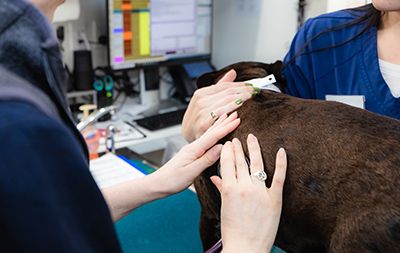Canine Surgical Procedures
No pet owner wants to think about their pooch going through surgery. However, this may be necessary for the continued good health of your canine companion. If you find that your dog needs surgery, you need all the information you can have.
At La Jolla Veterinary Hospital, we strive to provide a compassionate and reassuring experience for you and your loving pet. Learning about canine surgical procedures can help you make informed decisions for your pet's health.
Different Canine Surgical Procedures
Canine surgeries are in two categories—emergency and elective surgeries. The two have similar requirements when it comes to the actual procedures. Emergency or urgent surgeries are a medical necessity for the health of the dog. They are often life-saving and do not entail advanced preparations.
Elective surgeries do not involve an emergency but are essential for your dog's health and long-term well-being. Here are the outcomes and possible risks associated with the procedures.
Common Elective and Emergency Surgeries
Several elective surgeries are performed in our practice. They include:
Spaying or neutering procedures.
Removal of benign skin growths.
Dental extractions.
Common emergency surgeries include:
Skin lacerations, wounds, or lacerations.
Orthopedic surgeries/bone fractures.
Abdominal surgery for intestinal obstructions.
Urethral blockages or bladder stone removal.
Internal bleeding.
Malignant skin tumor removal.
ACL ruptures.
Torn cruciate.
Choosing to Proceed With Surgery
If our veterinary team recommends surgery, it is in the dog's best interest. The decision to get the procedure will require a discussion about possible complications.
The team will consider factors such as the dog's health and age, potential outcome, recovery time, and post-surgical care. You are free to ask questions and discuss any issues of concern before the surgery.
Preparing for Your Dog's Surgery
Our vet team will need to know your dog's health history before any surgical procedure. They will perform a physical exam to help evaluate the dog's general health. They will also check for potential issues that can increase the risk of complications.
We will discuss with you any issues arising from the exam. Pre-anesthetic tests, including radiographs and blood work, are done. Your veterinarian will need to know any medications your pet may be on. You will go through the preparations required before surgery and the recovery and post-surgical care.
Post-surgical Care for Your Dog
When your dog undergoes surgery, you will receive post-surgical instructions to care for your dog. The recovery period is just as crucial as the procedure for long-term success. You will receive instructions on the dog's activity, feeding, medications, and care at the surgical site.
Your dog must wear a cone or e-collar to keep him from chewing or licking the incision. The vet will schedule follow-up appointments to ensure recovery is progressing as expected. You need to monitor your dog carefully during this period.
Most canine surgical patients are ready to go home on the day of the procedure. The complexity of the procedure will determine how long your dog will remain in the clinic. Our staff will call to let you know when your dog is ready for discharge. You will receive the care instructions before you leave.
To learn more about canine surgical procedures, visit La Jolla Veterinary Hospital at our office in La Jolla, California. Call (858) 454-6155 today to schedule an appointment.








